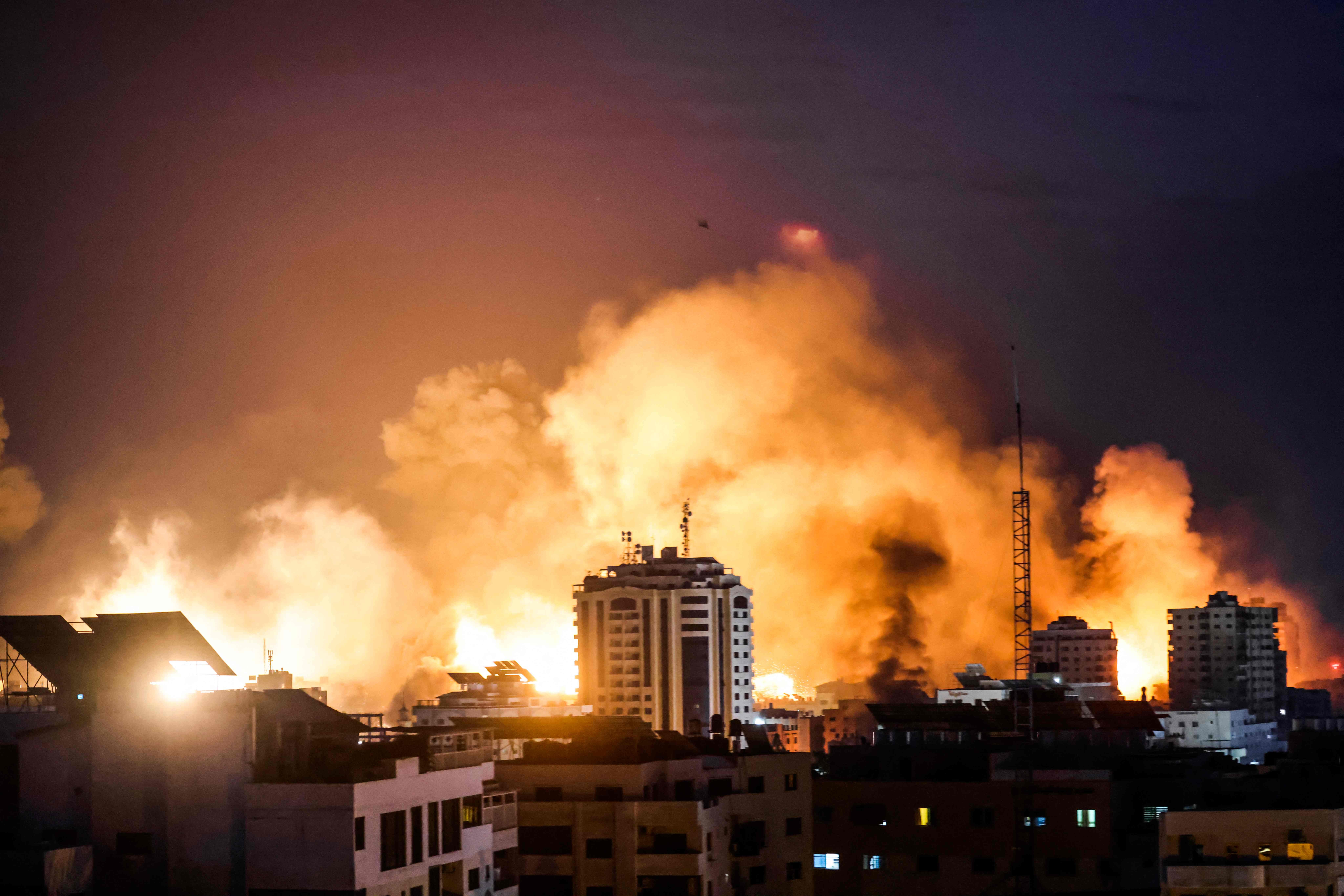The complete blockade of Gaza will be brutal: the big question is what comes next
Israeli Prime Minister Benjamin Netanyahu is under pressure from hawks to destroy Hamas, but there are others calling for cooler heads to prevail, writes Kim Sengupta


The total blockade of Gaza imposed by Israel, with food, electricity and water cut off, can only be a short-term measure because of the sheer humanitarian suffering this will inflict on the people in the territory.
Aid organisations, diplomats and Israeli security officials recognise that such harsh punitive measures cannot be kept for long without a terrible toll being taken, even by the standards of wars in Gaza.
The siege is taking place while Gaza is experiencing ferocious, pounding air strikes. The health ministry in the territory has said around 680 people have been killed and 3,700 injured by Israeli warplanes and missiles since Saturday. The combined stress of bombs and blockade may, it is feared, lead to a catastrophic collapse of infrastructure.
Israeli security officials privately say that the blockade is to gain time while the right military option is taken after 300,000 reservists were mobilised in the biggest call-up in the country’s history.
But there is believed to be debate about what that consensus should be.
As the country reels from the Hamas assault which led to the killings and kidnapping of hundreds of civilians, the hawks in Benjamin Netanyahu’s cabinet are calling for total war and the destruction of Hamas.
Senior figures in defence and security and intelligence services, however, are said to be hoping that cooler heads may prevail for a coherent military and diplomatic plan to emerge.
“We have some wild talk of reoccupying Gaza and totally destroying the Hamas administration there,” said one official. “Would there really be an appetite for occupation six months down the line? Or do we put Abu Mazen [head of the Palestine National Authority] back on top of an Israeli tank and make him head of government? How will that play out in Gaza? There really needs to be longer-term thinking”.
Hamas and Mahmoud Abbas’s Fatah have long been rivals for the Palestinian leadership, a struggle which has been engaged with bullets as well as the ballot box with more than 600 killed in internecine fighting. Hamas has been in control of Gaza since 2007.
A delay in launching a military operation may also allow negotiations to take place over the 130 Israeli hostages taken into Gaza. Qatar, which has influence over Hamas, have started talking to Israel and Hamas over the fate of the detainees.
Israeli security officials said one possible relatively quick deal could involve women and children among the hostages being swapped for Palestinian women and children being held in Israeli jails. The Qatari foreign ministry confirmed the talks are taking place and have been “encouraging” so far.
Israeli officials say they do not expect many of the male hostages to be freed for the time being. “Hamas know from past experience that we are prepared to pay a high price to get back our people,” said one official. “They also know that they won’t get another chance to kidnap so many people again in the foreseeable future.”
Israeli security forces are calibrating the scale of other challenges they may face if and when a ground move takes place. The Lebanese militia, Hezbollah, have pledged an offensive if Gaza is invaded.
The Lebanese border has been reinforced. There is no sign of an imminent large-scale Hezbollah attack, say the Israelis, but report that two armed men were killed after a group crossed the border on Monday near the towns of Aalma El Chaeb and Zahajra. Two Israeli soldiers were injured in the firefight.
There is also the threat of action in the West Bank where militant Palestinian groups such as the Jenin Brigade and Lion’s Den, have already been involved in rising numbers of armed clashes with Israeli security forces. Security has been augmented in the cities of Jenin and Nablus.
“We have contingency plans for all this. But the threats are real which makes it even more important that we conduct the Gaza operation in our timeframe and when conditions are optimal for us rather than rush into it,” a security official said.






Join our commenting forum
Join thought-provoking conversations, follow other Independent readers and see their replies
Comments